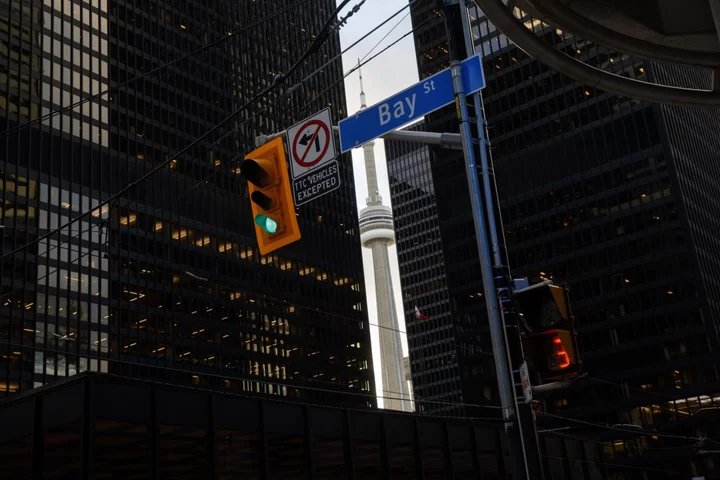Canadian legal software provider Dye & Durham Ltd. has hired Goldman Sachs Group Inc. and Canaccord Genuity Group Inc. to advise it on a potential sale of non-core assets, including its financial services division. The shares jumped.
The Toronto-based company had been on an acquisition spree for several years, but has faced growing investor concerns about its leverage and pledged during a September analyst call to get it under control. The stock suffered a bruising 19% loss that day after it reported a larger-than-expected quarterly loss, which it attributed largely to higher debt financing costs.
“Despite our strong business performance and liquidity position, we understand our shareholders would like us to reduce our leverage ratio,” Chief Executive Officer Matthew Proud said in a statement Monday. “We strongly believe this strategic review will accelerate this process.” Shares of Dye & Durham were up 12% to C$12.05 as of 2:52 p.m. in Toronto.
One item up for review is the financial solutions business, which includes assets acquired from Telus Corp. for C$500 million ($362 million) in a deal announced in 2021. At the time, Dye & Durham called it the largest non-bank payment platform in Canada, noting that it processed 140 million bill and tax payments and moved more than C$1.3 trillion annually, and said it would use the infrastructure to help move money on residential real estate deals.
The financial business may be generating about C$60 million in annual earnings before interest, taxes, depreciation and amortization, “although this is unclear,” BMO Capital Markets analyst Thanos Moschopoulos said in a note.
Dye & Durham said it will examine a number of options to get to its goal of reducing total net debt leverage to less than four times adjusted Ebitda. It’s currently about 5.1 times including convertible debt, Moschopoulos said, adding that a sale of the financial business at 10 times Ebitda would bring in enough cash for the company to meet its target.
“DND’s leverage has been the key issue weighing on the stock, in our view; consequently, we believe that deleveraging through an asset sale would potentially be positive for the share price — contingent on the details of such a transaction,” the analyst wrote.
The company said it does not plan to disclose further developments on the strategic review unless they result in a sale.
Dye & Durham was among the top two Canadian stocks with the biggest increases in short interest relative to tradeable shares last week, according to data from financial analytics firm S3 Partners. Nearly 5% of its shares are sold short, according to data compiled by Bloomberg.
(Updates share price and adds analyst comment. An earlier version corrected the value of the Telus deal in the fourth paragraph.)









